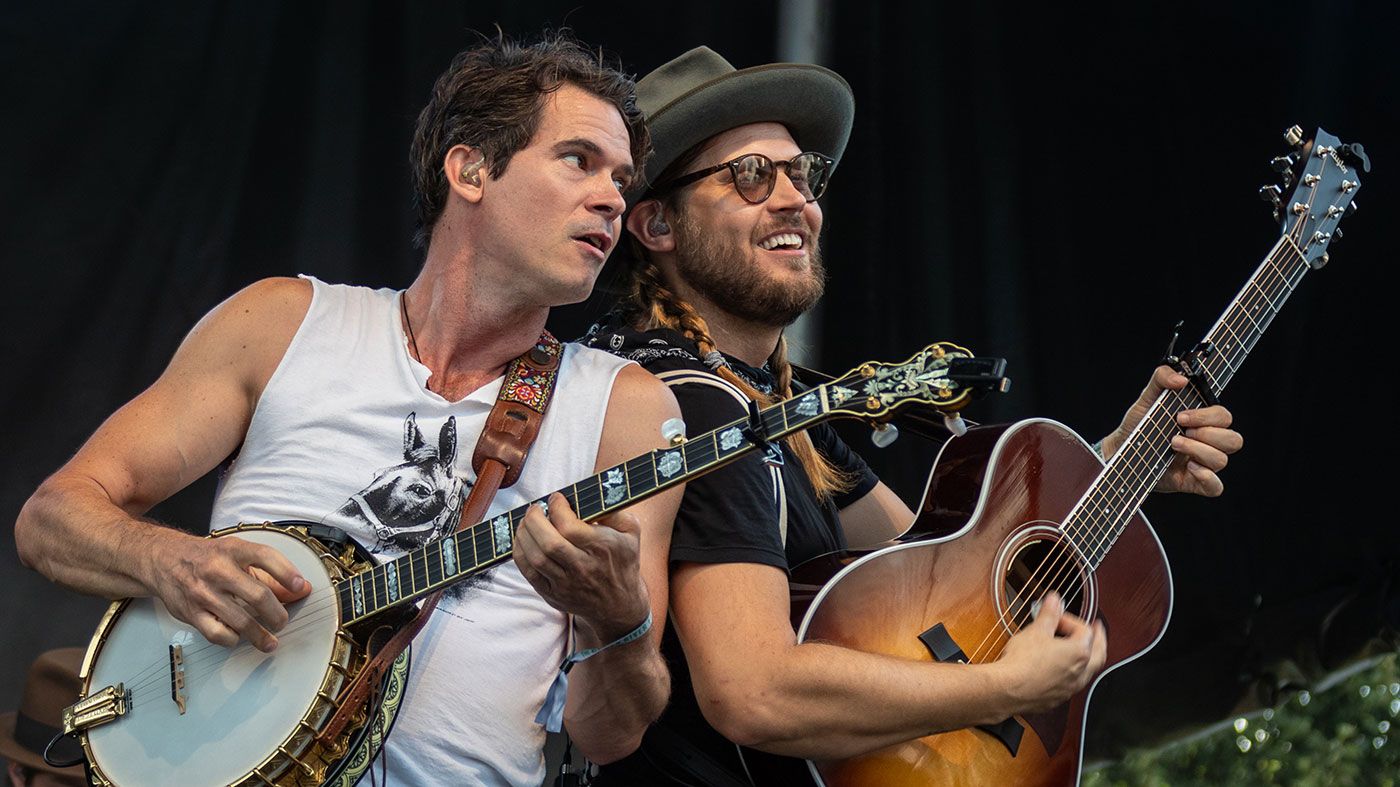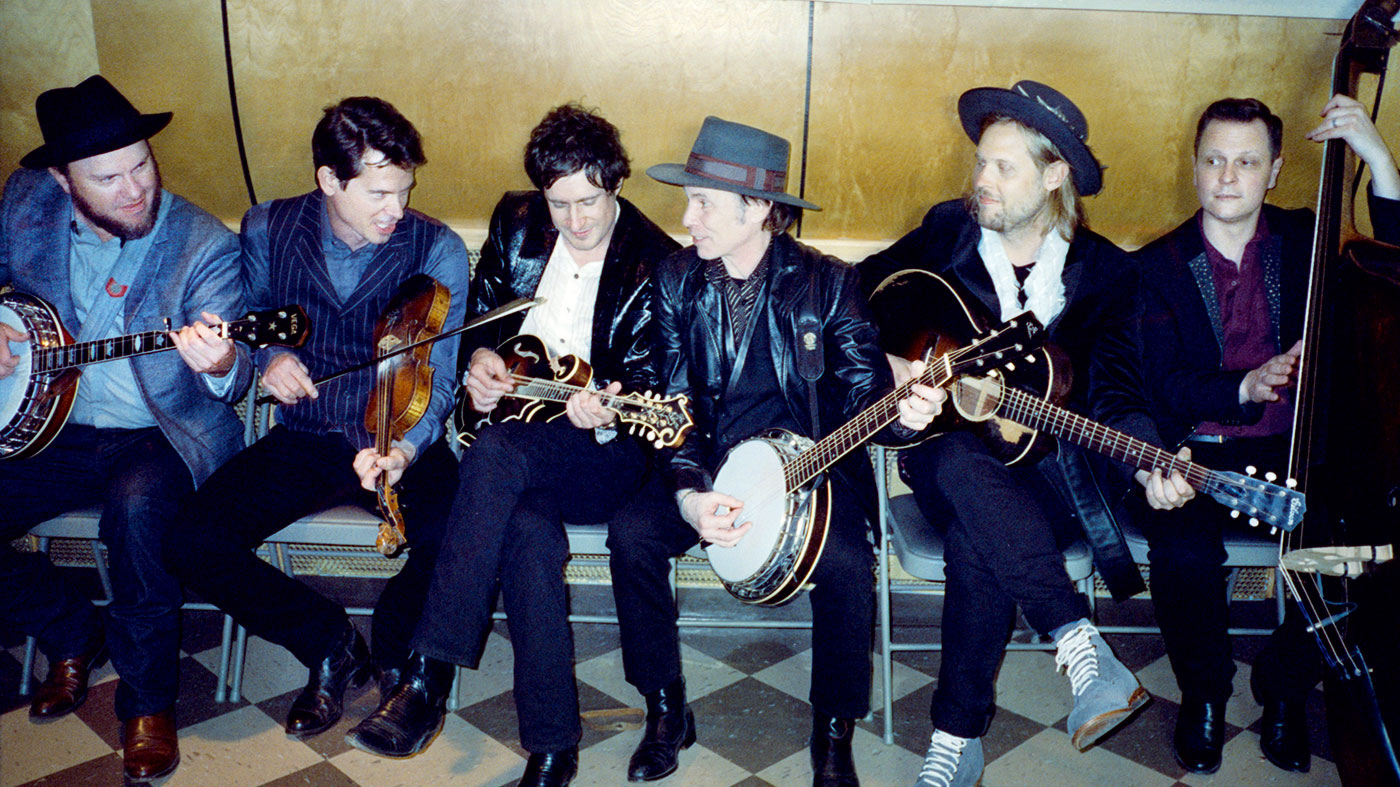Old Crow Medicine Show's Ketch Secor: “I think there are too many guitar players in the United States of America”
The roots hero on the lessons guitarists forget

Can the guitar stay relevant in the era of Trump and Twitter? Yes, says Old Crow Medicine Show's roots master Ketch Secor, though it’s not about what you’re playing - it’s what you’re saying that matters...
Roots music is poorly named. To call it ‘roots’ suggests that this is where music starts - that mankind has not been manipulating melody and rhythm to document thoughts, feelings and events as long as we’ve had consciousness.
I wanted the song equivalent of the daisy stuck into the gun barrel photograph
Ketch Secor, the founder, vocalist and multi-instrumentalist behind Grammy-winning roots stars Old Crow Medicine Show, views music as an evolving, communal voice - a theme reflected in the title of their recent album Volunteer. But while you might not believe it from their string-laden, dust bowl jams, it was the voice of Michael Jackson that first caught the young Ketch’s attention.
“We all felt in 1984 that Michael Jackson was the greatest musical accomplishment we could hope for,” Ketch recalls. “There was that collective identity - I saw the world that Michael Jackson and Quincy Jones made and wanted to be in that world. I realised that music was a tool for people to voice themselves collectively.”
Folk entered Ketch’s life early, thanks to his parents’ record collection - one laced with Pete Seeger, Bob Dylan, Tom Paxton, Phil Ochs, Joan Baez, Sonny Terry and Brownie McGhee. “Though I think Michael did just as good a job of channeling the power of the people into song,” reflects Ketch. “Pete Seeger did it with a literal quality that was of more appeal to me - I wanted the song equivalent of the daisy stuck into the gun barrel photograph.”
Harping on
As you might expect from a childhood spent listening to social activists in song form, music heightened Ketch’s political awareness. It’s appropriate then that it was a school trip to Thomas Jefferson’s Monticello estate that became the tinder for Ketch’s creative leanings.
I don’t think there was any one instrument that satisfied me
“What was so interesting to me about Thomas Jefferson was that he owned slaves and was the president,” says Ketch. “I really wasn’t impressed by his early version of the mimeograph machine. I thought that the hearth of the slave cabins was more impressive - to think about how much had been burned in there. And then I went to the gift shop where you could buy all this shit: a quill pen, a copy of the declaration of independence and what did I get? I got the Jew’s harp. The central European immigrant instrument for the poor. I learned to play it right after that because I wanted to have a bag of tricks for my school play.”
Want all the hottest music and gear news, reviews, deals, features and more, direct to your inbox? Sign up here.
Ketch quickly took to the buzzing power of the simple, single-pitched instrument. It triggered something and over the next seven years he picked up the penny whistle, harmonica, guitar, banjo, fiddle, autoharp, bajo quinto, tenor guitars, resophonic guitar, cello, viola - the list, literally, goes on.
“I don’t think there was any one instrument that satisfied me,” says Ketch. “The guitar couldn’t do what the Jew’s harp could do. The Jew’s harp can do very, very little but it is something that the guitar can never replicate. I got an electric guitar [in my early teens] and I had fun rocking out with it and pressing the distortion button on that shitty amp. But then I took a hammer and a leather awl and I cut all the frets out of the guitar, put a fifth-string peg somewhere down the middle of the neck and it became a fretless, electric banjo. It sounded like shit, but it exemplifies my approach!”
The wood for the trees
“I think there are too many guitar players in the United States of America,” he continues. “I sang in a choir and that’s what made the big difference for me: finding a voice. The instruments were very important - I am an instrumentalist - but behind the instruments was something much more important: the voice to command those instruments.”
That voice and story, maintains Ketch, exists as one of many and needs to be regarded as such, whether it’s expressed through lyric or string.
“Roots music is all about the context in which it lives,” Ketch concludes. “It’s not so much about a song or style or personality - that’s all fitting into the context of everything from social upheaval to weather patterns and the economy. Jimmy Rodgers is of his time. Bob Dylan is of his time. Look at time as much as you look at Jimmy or Bob. Every player is grafting a new branch onto the same tree. The branches are not the tree. The tree is the tree!”

The Chain
See the links before you forge a new one
As guitarists we can gain a lot by looking beyond our own heroes for inspiration. Ketch recommends a big picture approach…
“The value and the power is a bit lost on the guitar strummer when they think that the roots of this are Page or Harrison,” he says. “If you don’t see that both of those players are linked in a chain that neither begins or ends with them and if you don’t see yourself as a link in that chain, then you don’t see that we are all part of the process.
“Americans have the tendency to lay claim to a lot of this stuff, but the guitar is not American and the greatest players come from all over the world - we don’t have ownership of this. It has ownership of us. It belongs to us collectively.”
Matt is a freelance journalist who has spent the last decade interviewing musicians for the likes of Total Guitar, Guitarist, Guitar World, MusicRadar, NME.com, DJ Mag and Electronic Sound. In 2020, he launched CreativeMoney.co.uk, which aims to share the ideas that make creative lifestyles more sustainable. He plays guitar, but should not be allowed near your delay pedals.


